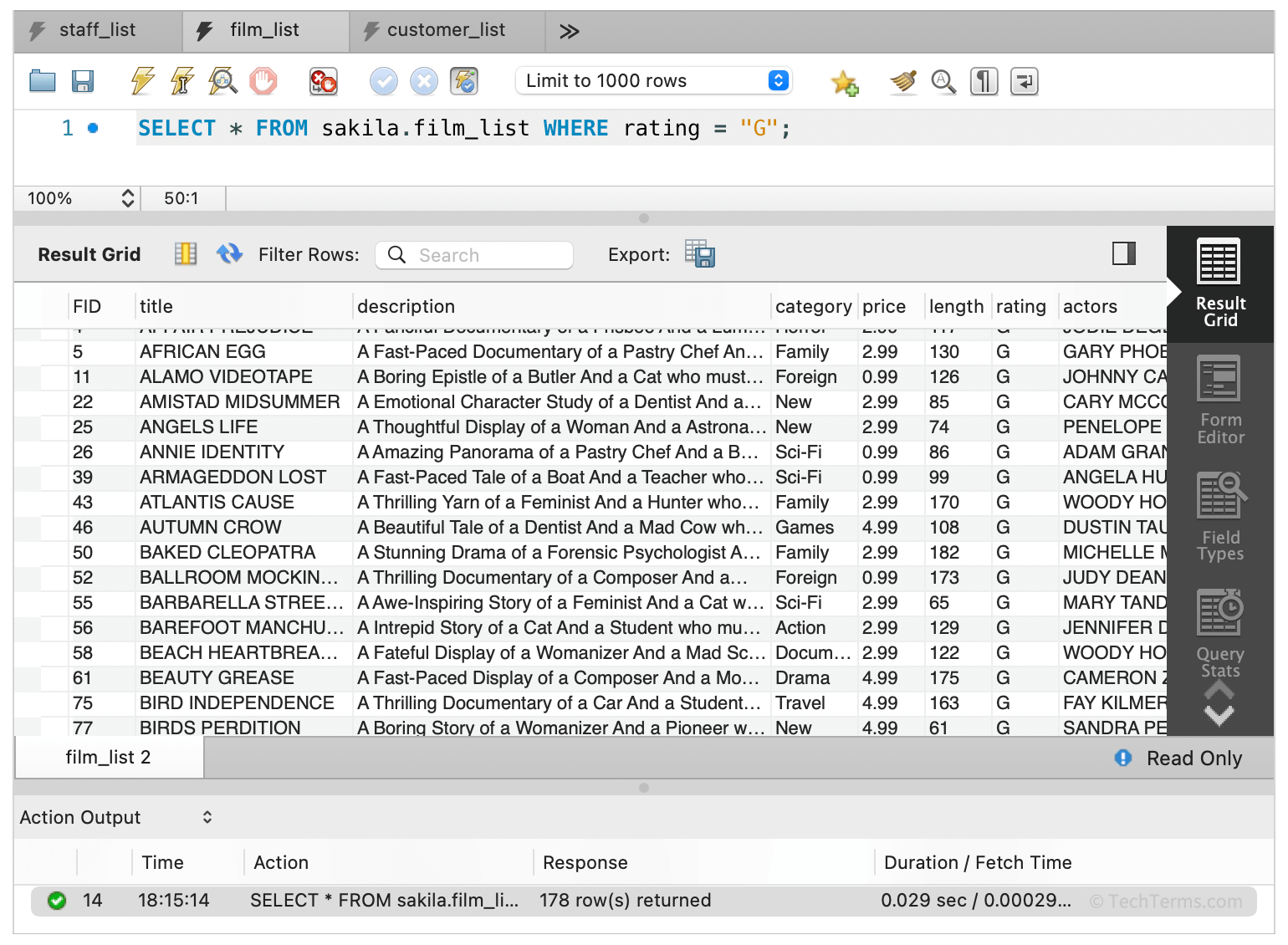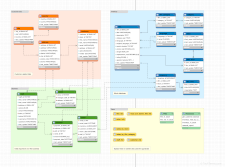Database
A database is a structured, organized collection of data stored on a computer system. Databases typically store information in multiple linked tables that keep relevant data for each record in dedicated fields. Database management system (DBMS) software maintains the relationships between tables, adds and updates records, and displays data in response to queries.
Most modern databases are relational databases, which link multiple tables together by creating relationships between primary key fields. For example, a business may keep a database that tracks customer information (like their name and email address) in one table, orders in another, and products for sale in a third table. Each record in these tables has a primary key field containing a unique ID that records in other tables can refer to; every order links to the CustomerID for the customer that placed the order and to the ProductID for each product purchased.
Looking up information in a database is called a query. Most databases use the structured query language (SQL) standard for queries, which lets you access and update records across multiple tables in a database. For example, a query to a database could display all customers in a particular ZIP code, all orders placed within the past week, or which customers have purchased a specified product more than once.

Databases are used for countless purposes in business, education, healthcare, and government. E-commerce, social media, news sites, and other dynamic websites use databases as a backend to store their content, generating pages containing content from their databases on demand. Finally, while early databases could only handle plain text, modern databases can store other data types like pictures, audio, and video.
 Test Your Knowledge
Test Your Knowledge